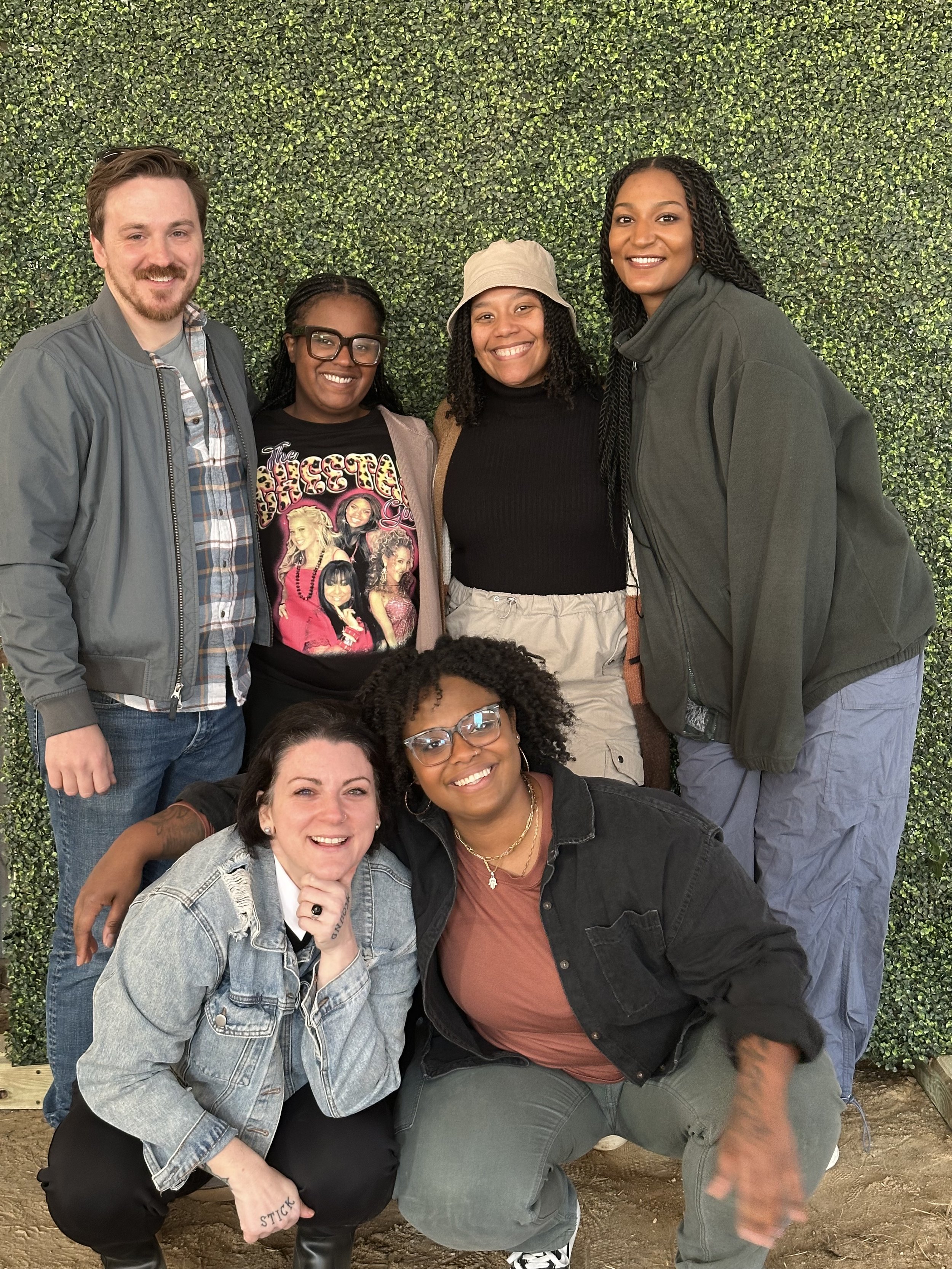
Therapy for Trauma in Columbia, MD
Available in-person and Online
Childhood trauma can leave lasting effects on your body, mind, and relationships. It impacts your capacity to engage in and navigate daily life.
Although you may continue to move about your life following harmful events, you might feel "stuck" in the past. This happens because your body doesn’t realize that the event is in the past. Your body responds as though the trauma is still happening.
You may find yourself doing or experiencing some of the following:
Avoiding emotions that feel overwhelming
Unwanted memories of the past
Loss of memory or parts of a memory
Difficulty identifying feelings and emotions
Repeated engagement in negative patterns
Disordered eating
Disorientation and difficulty remaining present
Difficulty recalling information about yourself or your life experiences
Risky or impulsive behaviors
Difficulty forming or maintaining relationships
Dissociation and/or disconnection from your body
Angry outbursts
Fear, panic, and difficulty feeling “safe”
Recurring nightmares and/or flashbacks
The treatment of unprocessed trauma can provide you with the resources to reorganize past experiences and fully experience the present.
You Are More
~
Than Your Symptoms
~
You Are More ~ Than Your Symptoms ~
You Are More
~
Than Your Symptoms
~
You Are More ~ Than Your Symptoms ~

Each therapist at Lotus Embodied Counseling has training in the treatment of trauma-specific concerns.
You can explore which provider offers approaches that seem to be the best fit for your needs.
“Trauma disarms us of power, safety, and control. Embodied healing recognizes that our bodies not only hold our traumatic experiences, but they hold the wisdom of our self-awareness, self-acceptance, and regulation from survival to mindful connection.”
-Sharnise Hendrick, Founder of Lotus Embodied Counseling

We might be a good fit if you have experienced any of the following:
Sexual and/or physical abuse
Sexual assault
Ritualistic abuse by an organization (i.e. church or cult)
Physical violence
Attachment Concerns
Neglect
Exposure to war
Or if you identify with any of the following:
You lived in a household where domestic violence occurred
You are a survivor of incest
You experience flashbacks or unwanted thoughts/images about distressing events from your past
You feel as if you are unworthy or unloveable
You feel immense shame and guilt for negative events that have happened to you
You feel disconnected or detached from yourself or others
You have difficulty forming relationships due to fear of being close to others
You have experienced negative experiences/treatment based on any aspect of your identity
FAQs About Trauma Therapy
-
The pace of therapy may initially feel slow. We do this so we can support your needs without creating retraumatizing experiences in the process.
The first step of therapy will be an intake session which will explore the history of current stressors and your goals for therapy.
Following the initial intake, you and your therapist will continue to assess the impact of past and current experiences. Your therapist will offer psychoeducation on how trauma is stored in the nervous system and how this contributes to survival behaviors.
The initial stages of therapy will support your safety and stabilization. We aim to reduce any immediate threats of harm and safety and create the foundation for the next steps in treatment.
We will also explore the usefulness of your current behaviors and support you in finding new ways to get relief.
-
We know that your body and mind will keep responding to trauma even if it happened a long time ago. You may know logically that the event(s) happened in the past, but our built-in survival system (sometimes called the “fight-or-flight” system) doesn’t know it. It’s as if your body is almost always on “high alert,” ready to respond to harm.
Processing (aka “reprocessing”) your past means reorganizing emotions, feelings, sensations, and beliefs about past harm so that your fight-or-flight system can settle and recognize safety instead of always being on “high alert.”
In the treatment of trauma, we aim to support your groundedness in the here-and-now while honoring the impact of the past.
-
In this stage, you may notice increased awareness and connectedness to your experience as you work through dislodging what has been "stuck."
The treatment of trauma and the therapeutic relationship may provide you with the opportunity to reconnect with yourself and your community and identify supportive relationships.
You may also experience grief, which is a healthy and necessary process. To mourn the past and the loss of ideal experiences opens up space within you to create new experiences and relationships (rather than being stuck in the same patterns).
Trauma-informed care is incomplete without the recognition of the ways oppressive systems contribute to our mental health. Intolerance or threats to any aspect of our identity have detrimental outcomes on our ability to feel safe within our communities. Honoring cultural factors as we explore distressing lived experiences is part of trauma-informed care.
-
EMDR stands for Eye Movement Desensitization and Reprocessing. It is an effective, evidence-based treatment widely used for treating trauma-related symptoms. It can also be used for eating disorders, panic, PTSD, and complex trauma.
This form of therapy does not require you to speak in detail about distressing events.
Instead, EMDR supports the brain's natural healing capacity to reorganize traumatic information that has become "stuck." It supports you in resolving unprocessed trauma while remaining grounded in the present. You can remember the distressing event without being flooded with PTSD symptoms such as anxiety, fear, flashbacks, and avoidance.
There 8 phases to EMDR and many protocols specific to certain concerns so that we can tailor the treatment just for you based on your history and what you want to accomplish.
Please note: EMDR requires therapists to meet specific training criteria to offer this therapeutic modality. Sharnise is the only provider at the practice that offers EMDR at this time. There may be a waitlist for services. Brianna will be offering EMDR in Fall 2022.
-
If you experience dissociation, you may feel detached from your emotions, thoughts, and actions and disconnected from the world around you. You may also sometimes feel disconnected from your identity.
Dissociation is a natural response to anything overwhelming to our nervous system and our brain's way of protecting us from threats and pain. Although it is a helpful coping response, dissociation can impact our access to new and old information, often preventing the organization of our lived experiences, as well as potentially disrupting our interactions with others. Dissociation is a common experience among survivors of trauma.

“What benefits do people get from therapy?”
Though every person and situation is unique, and we can’t guarantee a specific outcome for you, some of our clients say they experience the following:
Increased feelings of safety
Empowerment to make choices for their life and their future
Reduced experiences of dissociation
Less guilt and shame
Enhanced self-esteem and self-acceptance
Recognition of the impact of harmful systems that perpetuated trauma
Increased connectedness to self
Decreased engagement in self-abandoning behaviors
Increased connectedness to others
Contact us today
If you resonate with any of the above, we invite you to reach out.







